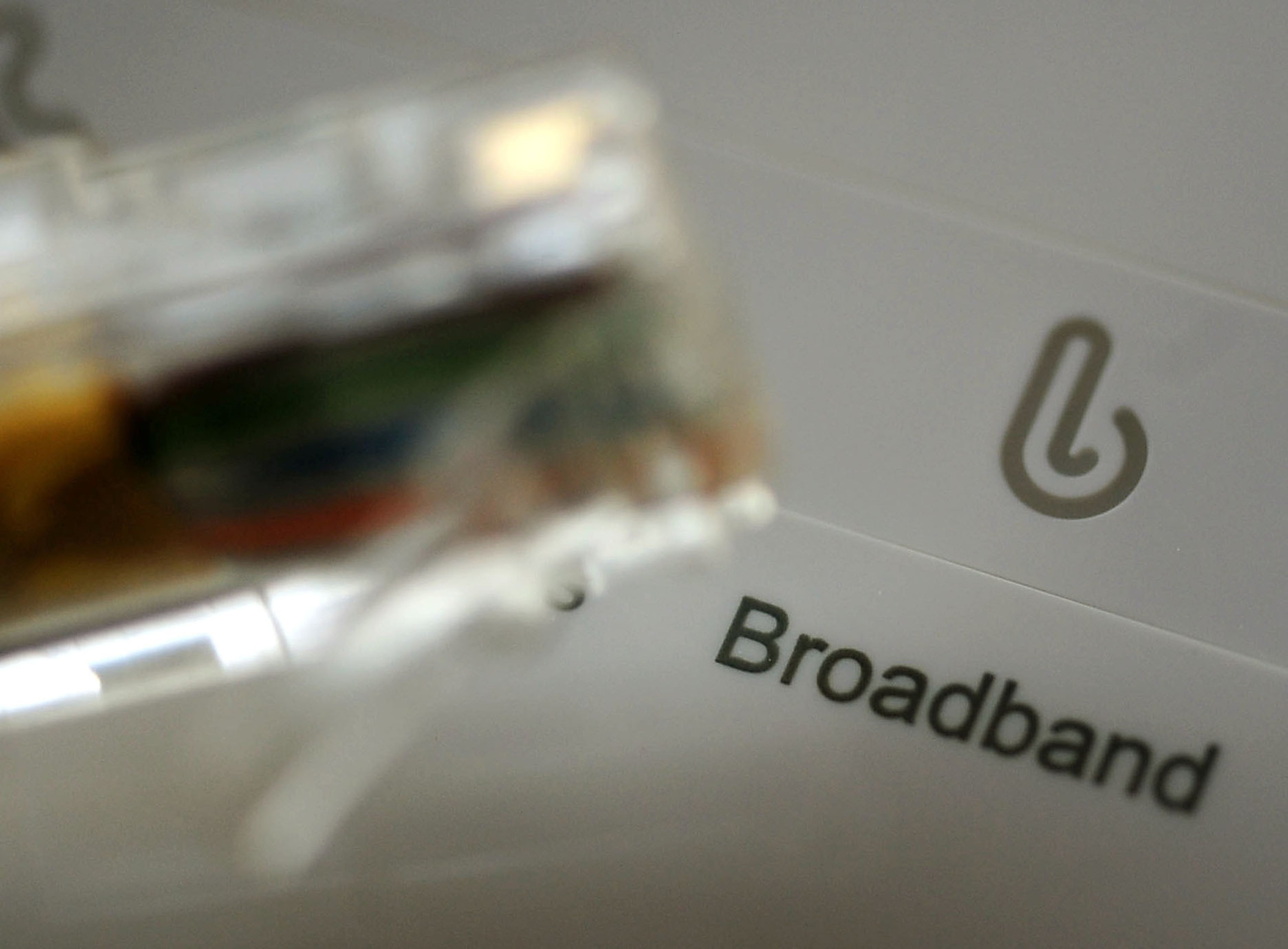Full-fibre broadband now available to eight million homes, says Ofcom
The regulator’s Connected Nations report, however, shows only about a quarter of those have so far upgraded to the faster connection.

Your support helps us to tell the story
From reproductive rights to climate change to Big Tech, The Independent is on the ground when the story is developing. Whether it's investigating the financials of Elon Musk's pro-Trump PAC or producing our latest documentary, 'The A Word', which shines a light on the American women fighting for reproductive rights, we know how important it is to parse out the facts from the messaging.
At such a critical moment in US history, we need reporters on the ground. Your donation allows us to keep sending journalists to speak to both sides of the story.
The Independent is trusted by Americans across the entire political spectrum. And unlike many other quality news outlets, we choose not to lock Americans out of our reporting and analysis with paywalls. We believe quality journalism should be available to everyone, paid for by those who can afford it.
Your support makes all the difference.More than eight million homes across the UK are now able to access hyperfast, full-fibre broadband, new figures from Ofcom show, an increase of three million properties in the last year.
But the telecoms regulator’s latest Connected Nations report revealed that less than a quarter of those properties had so far chosen to upgrade to full-fibre broadband.
Full-fibre connections are capable of speeds of up to 1,000Mbps or one gigabit, significantly faster than the average UK speed of around 51Mbps, and is becoming available just as the need for faster internet speeds continues to grow with more people working from home and families owning an increasing number of internet-connected gadgets that wish to access data-hungry streaming services and other applications.
Elsewhere, the Ofcom report also showed that about 123,000 homes – around 0.4% of the UK – still do not have access to a “decent” broadband connection of 10Mbps.
Many families now have multiple devices on the go at the same time for work, learning and entertainment – and the festive holidays can see a particular battle for bandwidth
Lindsay Fussell, Ofcom’s network and communications group director, said there was “more work to do” to ensure every community got the connections it needed.
“Many families now have multiple devices on the go at the same time for work, learning and entertainment – and the festive holidays can see a particular battle for bandwidth,” she said.
“Full fibre is helping meet those demands, with millions more benefitting from faster speeds and more reliable connections. But some homes in hard-to-reach areas still struggle to get decent broadband, so there’s more work to do to make sure these communities get the connections they need.”
Responding to the report, Ernest Doku, telecoms expert at Uwswitch.com, said a lack of awareness around faster broadband being available to people was a “constant problem”.
“Taking full-fibre infrastructure to eight million households is an impressive achievement, but it’s sobering to think that fewer than two million are actually taking advantage of these connections,” he said.
“The lack of awareness about what speeds consumers could be getting is a constant problem, highlighted by the fact that nine of the UK’s slowest streets for broadband could be enjoying superfast or ultrafast speeds.
“With more than seven million people out of contract and potentially overpaying for their broadband deals, it’s time for consumers to check what price they’re paying for the speeds they’re getting and see if they can do better.
“Ofcom’s figures also reveal the darker side of the digital divide, as 123,000 households are lagging behind without a decent 10Mbps connection.
“Large-scale investments by broadband networks to upgrade Britain’s infrastructure are starting to pay off, but it’s critical that households in more rural areas are not left behind.”
Ofcom’s report also highlighted the growth of 5G coverage, estimating that around half of UK properties are in areas where 5G is available outside from at least one operator.
It said the uptake of 5G-enabled handsets had increased substantially too, rising from 800,000 in 2020 to more than six million in 2021.
Culture Secretary Nadine Dorries said: “Ofcom’s report shows we are making major progress on our commitment to deliver a digital infrastructure revolution.
“Superfast broadband, almost universally available thanks to our £2 billion investment, allows people to work remotely, video call and stream TV on multiple devices at once with no interruptions.
“But no-one should miss out on better connectivity. Starting with areas still struggling with slow speeds, we are upgrading the nation with a further £5.5 billion of funding to close gaps in mobile coverage and deliver even faster gigabit broadband in rural areas.”